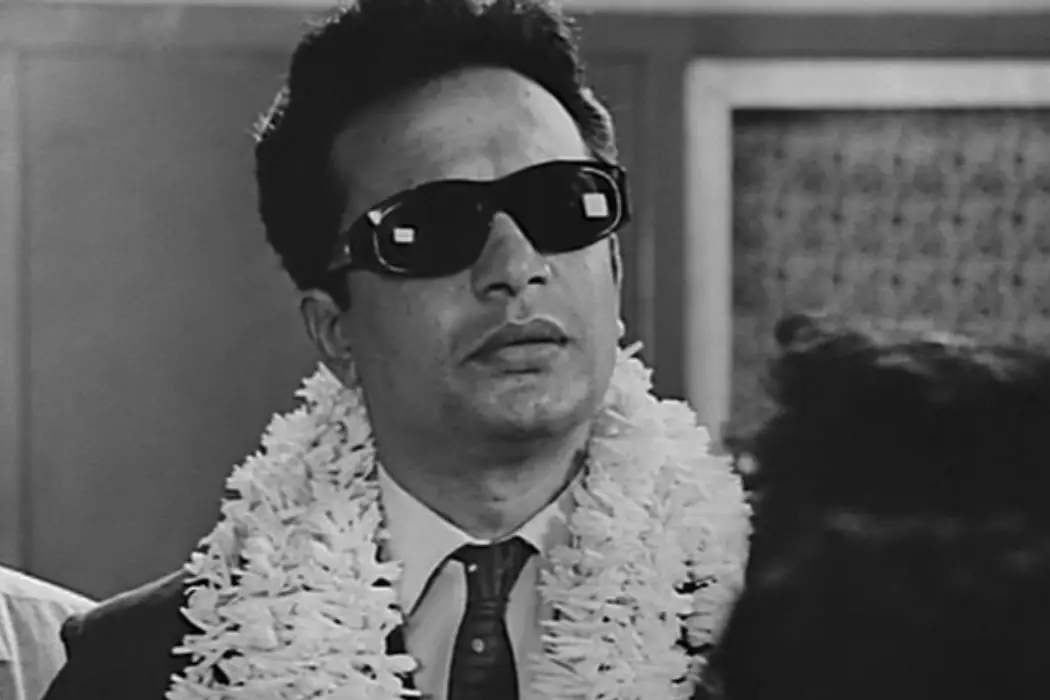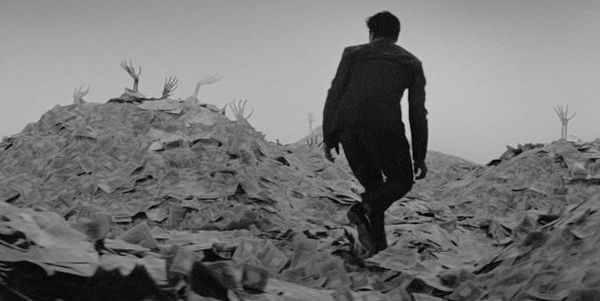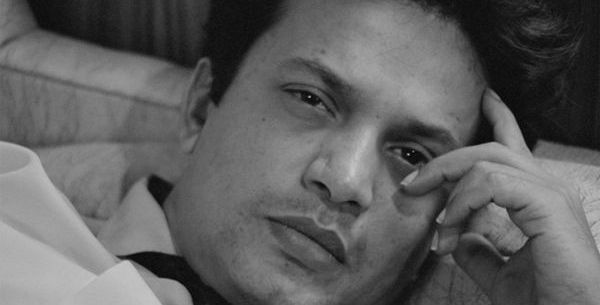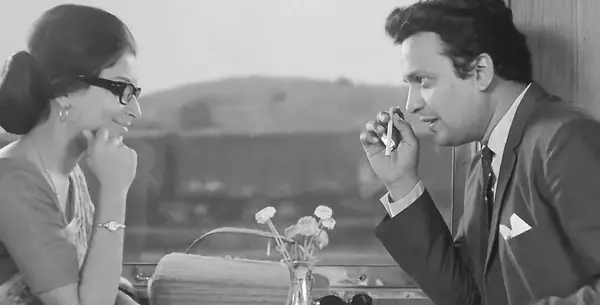Satyajit Ray – THE HERO at Berlinale

A writer from Mumbai, India
The year 2021 will find special mention in the annals of Berlinale history for giving us the first-ever virtually programmed edition of the largest film festival in the world. Something else is also unique about this year as May 2nd will mark the birth centenary of an auteur whose name pops up more than any other filmmaker in the seventy-year history of the Berlinale. I’m referring to India’s greatest known filmmaker Satyajit Ray who is hero-worshipped in Berlin for being one of only four filmmakers to win the Silver Bear for Best Director more than once and for receiving a record number of seven Golden Bear nominations. In this piece, I’ll be reflecting on one of Ray’s Golden Bear nominated films, The Hero, which won the Special Jury Award and the Critics’ Prize (UNICRIT Award) at the Berlin International Film Festival, 1966. Perhaps, it is only fitting that this article’s heading – Satyajit Ray – The Hero at Berlinale – alludes to a dual reference of the filmmaker and his film.
The story of The Hero (Bengali: Nayak) revolves around a matinee idol Arindam Mukherjee (Uttam Kumar) on an overnight train journey from Kolkata, India to the capital Delhi to receive a prestigious award. On the train, he befriends a young female journalist Aditi Sengupta (Sharmila Tagore) who edits a modern women’s magazine, Adhunika. An arrogant Arindam gradually begins to let his guard down and starts disclosing his past mistakes, insecurities, and regrets to Aditi, thereby revealing the emptiness within him.
Breaking Through the God-Like Facade
While taking a nap on the train, Arindam is troubled by a nightmare of drowning helplessly in a heap of money. He shares it with Aditi and also recounts how his acting mentor Shankarda had discouraged him to join films owing to the fickle nature of showbiz. After Shankarda’s death, Arindam discarded his advice and succumbed to the lure of fame and money dangled by the movie business. Now on the brink of his first flop, the words of Shankarda – “Once you have three-four flops in a row, the movie business will spit you out” – begin to haunt him.

The other incident that Arindam reminisces about is his first day of film shooting where the senior actor Mukunda Lahiri berates him in front of the entire crew. Years later, when Arindam has become a big star and an old, frail Lahiri comes to his house pleading for work, Arindam doesn’t help despite being in a position to do so. Arindam’s guilt manifests itself through his subconscious-triggered second dream later in the film.
When Aditi rakes up the importance of being conscientious, Arindam recalls how he chickened out of a situation that needed him to support a morally right cause. The fear of his public image and box-office collections getting dented had turned him into a self-serving individual. Satyajit Ray reinforces the well-known bitter truth that a film star can’t help but be a slave to his persona and remains crippled by his insecurities.
The god-like facade gets completely shattered towards the end when an inebriated Arindam ridden with guilt and remorse becomes desperate to unburden his mental load by sharing it all with Aditi. Being witness to his loneliness and troubled personality, Aditi’s initial disdain for him turns into empathy and she drops her plan of publishing the frailties of the Bengali superstar.
The Auteur’s Midas Touch
Let’s begin with Ray‘s original screenplay of the film. The writing showcases his brilliance as he peels the central character’s artifice, layer by layer, to reveal a flawed and troubled human being. Also, what makes The Hero such an engaging watch is the blending of suspense into this character study drama. In the film’s opening scene, Ray establishes that Arindam was involved in a brawl the previous night, the news of which makes way into the newspapers. Throughout the film, the screenplay builds up curiosity about the incident, and eventually, in the second and final dream of Arindam, we learn of what transpired that night and the reason behind it. Apart from indulging in the character development and transformation of Arindam and Aditi, Ray presents a myriad of supporting characters from different walks of life on the train journey. Through their actions and behavior, he exposes the desires and hypocrisies of society at large.

Satyajit Ray‘s masterful control and sophistication over mise-en-scene in each frame proves why he is such a revered director. Also being a brilliant music composer, Ray‘s sparse and minimalistic usage of his background scores in a few critical scenes, helps in drawing more attention and focus of the viewer to those scenes. Only a self-assured, highly refined, and grounded artist realizes the importance of subtlety and restraint in optimizing the impact of their creations; and Ray was a genius at it. The cinematography in The Hero is exquisite as the camera dollies and zooms stylishly to spotlight the nuanced mannerisms of the characters. Some of the shots have been framed so aesthetically that I was reminded of the superlative camerawork in Fassbinder’s Veronika Voss (1982).
Conclusion
The Hero takes a compassionate look at the shortcomings of human nature that make a person fall prey to greed and moral corruption. Through the other characters on the train, Satyajit Ray tries to highlight that the problem of desire, insecurities, and emptiness isn’t restricted to celebrities alone, rather, it cuts across all strata of society. Without ever being judgmental, the deeply humanitarian filmmaker embraces the grey shades of Arindam’s personality and strikes a balance by portraying Arindam as a children-loving person.
I particularly liked the film for the many life lessons it teaches but never preaches. When Arindam goes reeling down a path of self-examination, it ends up destroying his superficiality and he comes face to face with his inner self. By opening up his heart and exposing his vulnerabilities, thoughts, and innermost feelings, he develops a genuine connection and bond with Aditi. At the same time, Aditi’s preconceived notions about him begin to dissolve further with every experience shared by him and she empathizes with the real, human side of the larger-than-life hero.

Lastly, I need to applaud the master for the grace and composure with which he has tackled the subject and characters in The Hero. Ray forgoes the commercial pressure of developing a romantic connection between the two lead actors in the film, who were huge stars of Bengali cinema. He refrains from overdramatizing any scene and keeps the emotions real and simple. By not demonizing or romanticizing Arindam, he fleshes out a real character who is flawed and selfish but good at heart, like most of us!
What are your favorite films that have explored the theme of troubled celebrities? Let us know your thoughts in the comments below!
Watch The Hero
Does content like this matter to you?
Become a Member and support film journalism. Unlock access to all of Film Inquiry`s great articles. Join a community of like-minded readers who are passionate about cinema - get access to our private members Network, give back to independent filmmakers, and more.













